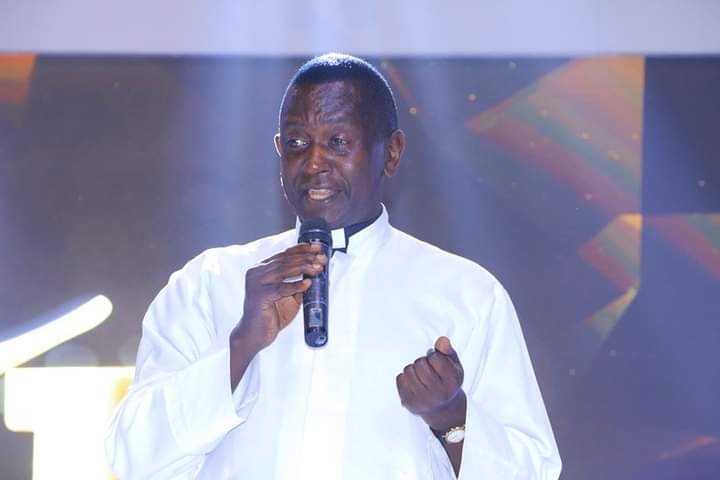This question is touched upon by Sir Edward Muteesa, former Kabaka of Buganda and first president of Uganda in his book “The Desecration of my Kingdom”
“I have never been able to pin down precisely the difference between a tribe and a nation and see why one is thought so despicable and the other is so admired.
Whichever we are, the Baganda have a common language, tradition, history and cast of mind. We are proud of them, but not to such an extent that we cannot be friends with – marry if we wish – other people … our pride is legitimate.” (p.9)
From anthropology, the word ‘tribe’ refers to a people who have a common language, culture and religion, and who tend to live closely together, bonded by family ties.
The Baganda do not fit this profile. Although they have a common language, culture and land, they do not share a common religion, nor do they live as closely together as they did, bonded by family ties.
Furthermore the word ‘tribe’ has acquired a pejorative sense, mainly due to televised documentaries which feature lost, or ‘disappearing tribes’.
‘Tribes’ are often thought of as small ethnic groups, living a simple life close to nature on the edges of civilization, somewhat superstitious, occasionally hostile to outsiders, hapless and in danger of extinction.
This may be a caricature but it is not easily avoided.
The Baganda and other indigenous African states in ‘independent Uganda’ should not be profiled in this way.
Thus the word ‘tribe’ and its uglier sister ‘tribalism’, should be used with qualification, or even better, not at all.
The Baganda today number seven million and live in many places outside the Kingdom of Buganda, which is now referred to as the ‘Central region’ in the state of Uganda.
Formerly the kingdom of Buganda was an indigenous polity, which was ruled by a dynasty of kings called Kabaka, and assisted by a Lukiiko or parliament.
Now for better or for worse it is subsumed into the Republic of Uganda under the central government.
The word ‘Buganda’ derives from the word ‘obuganda’, meaning ‘ bundles’. One bundle is ‘aka-ganda’, several bundles, ‘obu-ganda’.
The ‘Ganda’ suffix therefore indicates ‘bundles’ of originally diverse people who were ‘culturally fused’ and who make up the Baganda today.
This ‘bundles’ idea of diverse people in one entity should be teased out of the word ‘Uganda’,since most Ugandans are unaware of its meaning.
Over the years many people have come to live in the kingdom of Buganda. Some have bought land especially in and around the cities, where they have peacefully settled.
Some of these are now ‘new Baganda’, that is, they have become Baganda through marriage or assimilation.
Some Kiganda clans, like Ngabi, Nkima and Mamba, Nte have large numbers of ‘new Baganda’ but no-one thinks anything of it.
The royal clan including the Kabaka often married outside Buganda. Six out of the thirteen wives of the previous Kabaka, Sir Edward Muteesa, were not Baganda, and one was a Kikuyu from Kenya!
So the Baganda were never a monolithic ethnic group, concerned with preserving the purity of a certain blood line, like the endogamous Bahima, who only married among themselves.
They were integrationists, a people with many sub-identities always being integrated into one.
This dynamic ethnicity of the Baganda made them a ‘progressive commonwealth of clans’ and sub-identities, all under one king, the Kabaka.
BUGANDA NATIONALISM
Since the Baganda are a nation rather than a tribe, it is very true that they can be positively or negatively nationalistic.
Of late, some few Baganda have become ultra-nationalists that is, desirous of excluding anything or any one who is not originally a Muganda.
This negative nationalism is a result of disillusionment with the post-colonial state, Uganda, which seems like a failed experiment of new African nationalism.
It is these ultra-nationalists who resent ‘westerners’ in general, and Banyarwanda in particular.
They feel rightly or wrongly, that those groups have stolen Uganda’s wealth, via the existing regime.
If some have, surely not ALL westerners and ALL Banyarwanda have done so. It is a dangerous assumption and generalization.
Furthermore the said ‘westerners’ and ‘banyarwanda’ are now part of the identity of the Baganda, whether through marriage or assimilation. More importantly they are fellow Ugandans.
There is a luganda saying:
“Omuganda taboola” meaning: A Muganda does not discriminate against anyone, whether a Muganda or not.
Although this belief is the ideal, but the reality may be quite different due to prevailing socio-political factors.
Prejudice and discrimination do not happen in a vacuum but are linked to the economics and power relations in a society.
Buganda’s true nationalism is based on
a) love for the kingdom and land of Buganda
b) love for the luganda language,
c) love for one’s ekika or clan
d) love for the institution of the Kabakaship.
These are in no way ‘sectarian’ or inconsistent with being a patriotic Ugandan. Indeed they are possible foundations for a genuine patriotism, which respects diversity.
P
By way of way of comparison the United Kingdom is made up of the English, Scots, Welsh, and N. Irish.
These are not ‘tribes’, but four nations living in their own territories of England, Scotland, Wales and Northern Ireland,respectively.
Each has its own laws, language, culture, mentality and territory, but together they constitute one country, the United Kingdom.
These nations are not in competition with each other, but in some ways complement each other.
Similiarly the Baganda are a nation which exists within the state of Uganda, together with fifty three other indigenous states or ethnic groups, which may or may not wish to refer to themselves as tribes.
Uganda as a federation of regions, or a commonwealth of indigenous states, is long overdue.
Do you have a story in your community or an opinion to share with us: Email us at editorial@watchdoguganda.com



